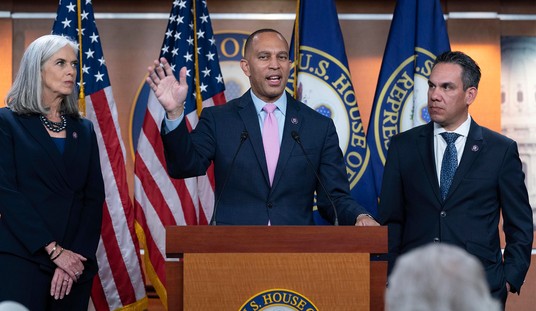Extreme weather incidents are forecast to be the leading cause of major supply chain disruptions in 2024. This is according to Everstream Analytics' Annual Risk Report for 2024. According to the report, which "is based on a comprehensive database of known and predicted events, which is driven by a combination of human intelligence and AI technology," weather outpaces these other possible events as a threat to global supply chains.
- New environmental regulations that could disrupt operations.
- National protectionist measures, particularly between the US and China.
- There is potential for escalating tension over Taiwan and its political status with respect to China.
- Shortages of agricultural commodities.
This is how they get there.
Panama Canal Drought. A drought in Central America has reduced the water level in the lakes feeding the Panama Canal. This canal drying has resulted in the canal placing restrictions on the number of ships that can pass each day. No one seems to know how rising sea levels caused by melting ice caps can't fix the problem, but it can't. This drought started in 2019, and restrictions have been in place since 2020, so a lot of the disruption is already baked into what we call normal.
4/8
— Jim Bianco (@biancoresearch) January 10, 2024
The reduction of cargo passing through the Panama Canal is unrelated but contributes to the overall problem.
This is due to the low water levels on Lake Gatun. pic.twitter.com/nlTpbOQn8w
Winter storms."Global ocean temperatures begin 2024 at record highs, and, combined with a rising trend in disruptive winter weather (snow, ice, wind), this elevates the risk of more impactful storms," Everstream notes. Are we really going to base business planning on storm forecasts months into the future when the National Weather Service couldn't tell me Saturday that it would snow today?
Changes in precipitation patterns.
Hurricanes. Yes, hurricanes can be disruptive, but there is no way of predicting hurricanes or their intensity. The hurricane activity in 2023 was precisely the same as the 1991-2020 yearly average.
They point to cold spells (like Texas in February 2021) and rogue events like the Canadian wildfires in June 2023 as other disruptors. Things like that are always possible, but we can say with 100% certainty that the Canadian wildfire problem will not be an issue this year because the fuel has been used.
In short, there is zero in the way of data in the report that indicates that weather will have any more effect on supply chains this year than any previous year.
The fact that rerouting ten percent of the world's commerce from the Red Sea and shipping costs skyrocketing isn't considered a threat struck me as curious. I'll concede that the analytical work on the report was probably done before the Houthis began blocking shipping. Still, it is hard to imagine a report going to press and ignoring it. This is what a supply chain disruption looks like.
5/8
— Jim Bianco (@biancoresearch) January 10, 2024
It is estimated that some $200 billion of goods worldwide have been diverted or are delayed. https://t.co/DduFwu2oKu
This can be seen in the following chart, which shows that imported cargo to European ports is collapsing due to the problems at the choke points above. pic.twitter.com/qUvO5DriIO
And while the massive increase in shipping prices that is on the way doesn't constitute, per se, a disruption in supply chains, it will contribute to shortages.
India-US shippers hit by three rounds of hefty rate hikes in January
— Sal Mercogliano (WGOW Shipping) 🚢⚓🐪🚒🏴☠️ (@mercoglianos) January 8, 2024
How do the #Houthis impact Americans?https://t.co/rZBHym7MTa via @container_news
Shippers facing huge wave of rocketing ocean rates and new surcharges https://t.co/XxZoS6Rt1t
— Sal Mercogliano (WGOW Shipping) 🚢⚓🐪🚒🏴☠️ (@mercoglianos) January 8, 2024
MSC, CMA CGM look to push stagnant trans-Atlantic rates higher
— Sal Mercogliano (WGOW Shipping) 🚢⚓🐪🚒🏴☠️ (@mercoglianos) January 7, 2024
https://t.co/ypKEKghmwd
What made me curious was this comment by our transportation secretary.
Extreme weather is expected to be the top factor in supply chain disruptions next year. It reminds us how urgently we must work to set up our infrastructure for climate resiliency. https://t.co/uaqH6qTAbJ
— Secretary Pete Buttigieg (@SecretaryPete) January 7, 2024
After the lies we were told in 2020 and 2021, I've become a skeptic/cynic whenever the government warns me about something.
In theory, the supply chain disruption in 2020 and 2021 was caused by COVID. But was it? The disruption was caused by the government's regulatory response to a crisis they created and amplified.
READ: NEW: Lawsuit Claims CIA Hid Records of 'Monetary Payoffs' to Bury COVID Lab Leak Findings
I have no doubt that there will be supply chain disruptions. I'm just not sure what the cause will be yet. I think forecasting those disruptions based on "extreme" weather looks a lot like bullsh** when you take it out of a dim room and bring it into the sunlight. Commercial systems are amazingly resilient if the government does not hamper them. I'm also curious why this report was pushed out into FoxNews's "lifestyle" section and why "Mayor Pete" highlighted it.
Based on our 2020/2021 experience, we can bet that we will hear more about this "crisis," and our government will attempt to arrogate power to itself based on the forecasted disruption and also use those real and projected shortages to restrict freedom. By election day, we can be assured that we will see more stories about extreme weather disrupting supply chains, and the fiasco in the Red Sea will be memory-holed.
In short, I see this as the leading edge of a gaslighting campaign to increase government control over our lives, and that will peak in time for Joe Biden to blame a major disruption of US supply chains that they see coming on anything but his policies.














